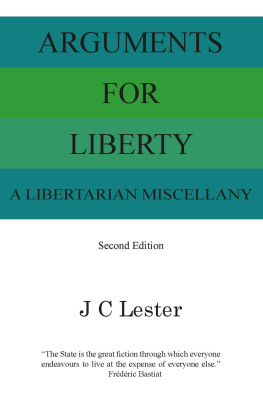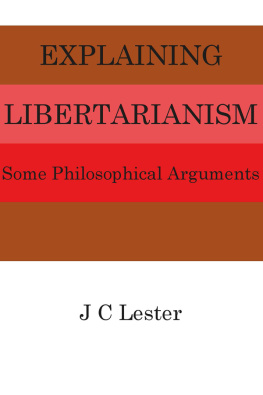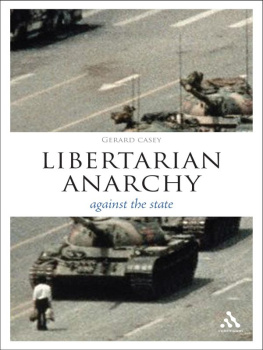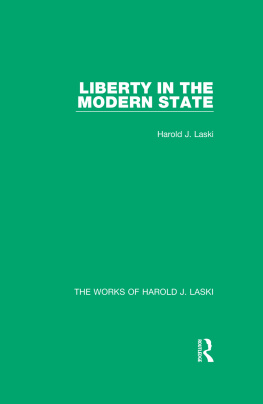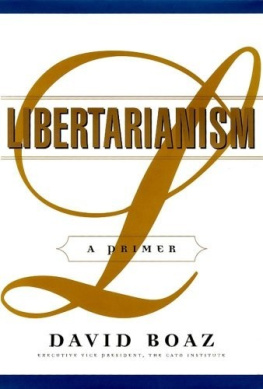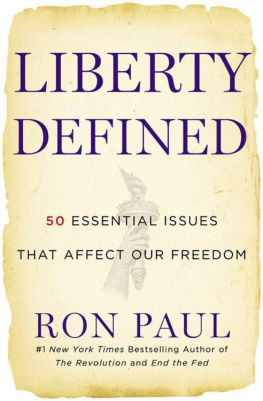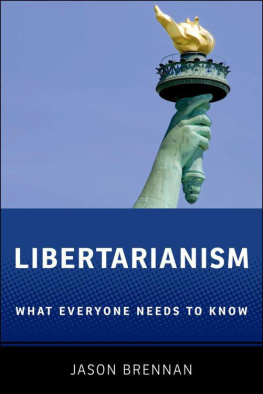ARGUMENTS FOR LIBERTY
A Libertarian Miscellany
Second Edition
ARGUMENTS FOR LIBERTY
A Libertarian Miscellany
Second Edition
J C Lester
The University of Buckingham Press
First published in Great Britain in 2011
This second edition published in 2016
by
The University of Buckingham Press
Yeomanry House
Hunter Street
Buckingham MK18 1EG
J C Lester
The moral right of the author has been asserted.
All rights reserved. No part of this publication may be reproduced, stored or introduced into a retrieval system or transmitted in any form or by any means without the prior permission of the publisher nor may be circulated in any form of binding or cover other than the one in which it is published and without a similar condition including this condition being imposed on the subsequent purchaser.
A CIP catalogue record for this book is available at the British Library
ISBN 978-1-908684-62-2
To David, Sarah, Meg and Will
Four delightfully civilised friends
Contents
Preface to the second edition
This edition contains three new chapters and many minor revisions.
What is libertarianism? There is no essential meaning of any mere word such that other uses must be objectively and crucially mistaken. It is far more important that we have debates about real problems and how to solve them. However, the ideology of libertarianism is a fairly specific thing and not a mere word. And in order to clarify any debates, it seems worth pointing out what that ideology is and some apparent errors and confusions about it. For some texts appear to be unwittingly uninformed or muddled rather than intentionally different.
Libertarianism is, more or less, the view that 1) interpersonal liberty (in some sense of people not initiating constraintsor proactively imposingon each other) is an overridingly desirable goal, and 2) this is best promoted by having a minimal state (minarchy) or no state at all (anarchy). Classical liberalism (as opposed to the completely muddled sense of modern liberalism) is less precisely and less universally pro-liberty. But some early classical liberal texts are minarchist or anarchist, although most are not. Hence libertarianism is probably best seen as a proper subset of classical liberalism. All this ought to be fairly clear and yet it does not always seem to be understood, even among many self-identified libertarian texts.
There are various examples in various combinations. Some texts assume that liberty is a zero-sum concept such that if one person has more liberty, then another person necessarily has less: that proactively imposed slavery is simply the slave-owner having more liberty at the slaves expense. This flouts the standard libertarian view that such a slave-owner is exercising aggressive power. Some texts, implicitly or explicitly, assume that liberty is not really the desirable goal but, instead, non-aggression, or self-ownership, or (natural) rights, or a system of (natural) property, or the free market, or some combination of these things (or, at best, they have an intuition that conflates or confuses these things with liberty but they have no proper theoretical explanation). Some texts assume that libertarianism is vague enough to include state tax-transfers for welfare, such as a basic income guarantee. Some texts assume that (state-enforced) resource-egalitarianism is compatible with or even implied by libertarianism. Some assume thatwhether as history, social phenomena, or theoryclassical liberalism and libertarianism are completely identical or, conversely, completely separate from each other. If texts explain libertarianism in any of these potentially confusing ways, then they and their critics ought at least to be aware of how different what is being said is from the basic account above.
There is a slight ambiguity in the title of this book. Arguments for Liberty might be read in two ways. One way is simply that the arguments are on the side of liberty rather than against liberty (as in a debate). That is the sense that is intended. The other way is that the arguments are supposed to offer epistemological support for liberty such that the nature and desirability of liberty becomes something stronger than a conjecture. As it is not logically possible to transcend a conjectural framework (or web of assumptions) to reach something stronger, that sense is not intended. The ambiguity might have been avoided by making the title Arguments in Defence of Liberty or even Arguments in Defence of the Libertarian Conjecture. But the increased wordiness did not seem worth it. In any case, most justificationists would notice no ambiguity because they would typically conflate the two senses (thinking that an argument on the side of liberty must be offering support) and most critical rationalists would already know better. Moreover, the relevant contents of the book are clear enough on this epistemological matter.
Preface to first edition
This book contains sundry libertarian scrivenings produced over around thirty years, and very lightly edited here. They should each have some individual interest in their own way, and together they also function as a miscellaneous introduction to libertarianism at varying levels of breadth and depth, and from the populist to the scholarly, and from the orthodox to the heterodox. As all these pieces were written independently of each other, there is both occasional repetition and even inconsistency (and any cited internet links were valid at the time and might not be now). But the observant reader might notice change and development in these ideas over time.
Several of the given dates are estimates. The first two pieces are the most general in scope to help the uninitiated reader to have an overview of libertarianism. The succeeding articles are approximately chronological until the penultimate one which is an explanation of libertarianisms place on the overall Political Compass (or Map) and an attempt to determine the readers position on it by way of a brief quiz. But there is no reason not to dip into whichever chapters might take ones interest first of all.
1) Libertarianism: an Extremely Short Introduction
(The pre-Bowdlerised chapter published in A Beginners Guide to Liberty, 2009.)
The word liberty
The words liberty and freedom are not usually distinguished in any systematic or significant way. They simply have different roots in the English language. Liberty has its origins in the Latin libertas. Freedom comes from the Old English freodom.
It is usually not necessary to discuss what we mean by a particular word. We can take it for granted that others mean the same thing as we do. But this is not always true with the fundamental words that arise in moral, social and political contexts. One such ambiguous and disputed word is liberty. So it is necessary to give some kind of definition or even theory of liberty before we can say clearly why it is important.
Liberty in its most general sense refers to the absence of constraints on something. Here we are interested in the absence of constraints on people by other people. There are two main ways to interpret this, which we can call zero-sum liberty and non-invasive liberty.
Zero-sum liberty
With zero-sum liberty, one persons loss of liberty is always another persons gain in liberty. If someone takes my car without my permission, then I lose the liberty to use that car and the taker gains the liberty to use that car. This has implications that can be used as criticisms. 1) Such liberty cannot be maximised for all, it can only be competed over or shared in some way. 2) Competing over liberty does not sound desirable, but is even equality of such liberty much better? What exactly does it mean? Why is it desirable? Does it require continual political intervention to enforce the equality? 3) In any case, it follows that the standard for what types of liberty matter (liberty to do this but not liberty to do that) must be something other than liberty. But why cant a conception of liberty itself be a standard of what is allowable? 4) This view means that we have to balance the liberty of a thief, or other aggressor, against that of his victims. Do we really think that this is what we are, and ought to be, doing? The zero-sum conception of liberty gives us problems rather than solutions. Yet people do sometimes talk of liberty in this way (even some libertarians).

